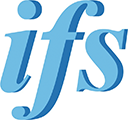
In recent years, product reliability and quality have become increasingly important competitive factors in German industry. Welding is still one of the most common joining processes for metallic materials. Welded joints are subject to high quality standards. Due to the metallurgical properties of the material and the welding process itself, inhomogeneities can occur in the weld seam (e.g. cracks, pores or bonding defects), which significantly impair the joint strength. In production, these defects are usually inspected using destructive testing methods. For this purpose, the components have to be prepared at great expense and cannot be returned to the production process after testing. Non-destructive materials testing (NDT) is characterized in production primarily by its cost-effectiveness in high volumes due to the reduction of testing times and the elimination of test scrap. Furthermore, the application of NDT offers the possibility to realize a 100% inspection. Therefore, various methods of non-destructive testing have been developed to prove component integrity.
The general rules for NDT of welded joints are listed in DIN EN ISO 17635. The application and limitations of established non-destructive testing methods are described in other standards, such as DIN EN ISO 17636 (radiographic testing), DIN EN ISO 17637 (visual inspection), DIN EN ISO 17638 (magnetic particle testing), DIN EN ISO 17640 (ultrasonic testing) and DIN EN ISO 17643 (eddy current testing). However, despite its significant potential (such as robust and imaging results), active thermography is not considered in these standards, or only in a rudimentary way. Thus, thermographic methods have not yet been sufficiently qualified for the inspection of welds, so that their potential cannot currently be fully exploited.
The aim of this research project is to qualify active thermographic methods for the inspection of welded joints and to transfer the necessary requirements for the inspection technique on the one hand and the admissibility of the methods for the inspection of welded joints on the other hand into draft standards. This is intended to establish the link between standardization in the field of non-destructive testing by means of thermography and welding technology.
Project goals